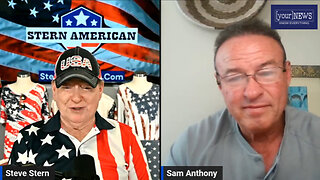Premium Only Content

Mastering ISF Filing for Sewing Threads: A Step-by-Step Guide for Importers
ISF Filer || isf@isffiler.com || 858-280-9374 || www.isffiler.com
In this video, we delve into the process of filing an Importer Security Filing (ISF) specifically for sewing threads. The ISF is a mandatory requirement by US Customs and Border Protection (CBP) for all ocean shipments, aimed at assessing the security risk of a shipment before it arrives at a US port. We discuss the essential components of an ISF, including the buyer and seller's information, ship-to party, manufacturer, and country of origin. Additionally, we explore the specific details that need to be provided when filing an ISF for sewing threads, such as the product's composition, color, size, and industry standards. We also emphasize the importance of accurately determining the Harmonized System (HS) code for sewing threads and highlight the role of customs brokers in HS code determination. Furthermore, we touch on the necessary timelines and documentation for a seamless ISF filing process and briefly mention the need for customs bonds when importing sewing threads. Finally, we highlight the benefits of utilizing customs brokerage services, as customs brokers can ensure accurate and compliant ISF filings, assist with customs bond acquisition, and simplify the import/export paperwork.
#usimportbond #isfcustomsbroker #uscustomsclearing #isfentry
Video Disclaimer Here: This video is intended for educational purposes and has no affiliation with US government entities.
00:19 - Importance of ISF Filing: The Importer Security Filing (ISF) is a mandatory requirement by U.S. Customs and Border Protection (CBP) for ocean shipments, aimed at assessing the security risk of shipments before they arrive at U.S. ports.
00:40 - Key Information Required: When filing an ISF for sewing threads, essential details include buyer and seller information, ship-to party, manufacturer, country of origin, container details, consolidator information, and planned arrival details, along with a detailed description of the sewing threads.
01:16 - Harmonized System (HS) Code: Accurate classification of sewing threads using the correct HS code is crucial as it impacts duties and taxes. Resources like the Harmonized Tariff Schedule of the United States (HTSUS) or customs brokers can assist in determining the appropriate code.
01:41 - Timelines and Customs Bonds: ISF should be filed at least 24 hours before the vessel's departure. Required documentation includes commercial invoices and bills of lading. A customs bond may be necessary, and consulting a licensed customs broker can facilitate compliance and streamline the ISF filing process.
-
 1:01:18
1:01:18
Tactical Advisor
15 hours agoBuilding a 308 AR10 Live! | Vault Room Live Stream 016
172K18 -
 2:17:02
2:17:02
Tundra Tactical
1 day ago $28.98 earnedTundra Nation Live : Shawn Of S2 Armament Joins The Boys
267K28 -
 23:22
23:22
MYLUNCHBREAK CHANNEL PAGE
2 days agoUnder The Necropolis - Pt 5
210K71 -
 54:05
54:05
TheGetCanceledPodcast
1 day ago $14.91 earnedThe GCP Ep.11 | Smack White Talks Smack DVD Vs WorldStar, Battle Rap, Universal Hood Pass & More...
202K35 -
 8:30
8:30
Game On!
19 hours ago $0.91 earnedLakers BLOCKBUSTER trade! Luka Doncic is coming to LA!
32.3K4 -
 48:29
48:29
hickok45
1 day agoSunday Shoot-a-Round # 266
30.7K10 -
 15:18
15:18
SternAmerican
3 days agoStern American with Sam Anthony from YourNews.com
21.3K1 -
 1:03:13
1:03:13
PMG
1 day ago $1.97 earnedRFK, Tulsi & Kash Hearings, the Plane Crash in the Potomic, & Ozempic
19.2K2 -
 11:33
11:33
DeVory Darkins
1 day ago $23.60 earnedJustin Trudeau PANICS after Trump slaps Canada with AGGRESSIVE Tariffs
120K273 -
 19:11
19:11
Stephen Gardner
1 day ago🔥HOLY CRAP! Chuck Schumer UNDER INVESTIGATION | 3 HUGE Trump MOVES explained!
130K338